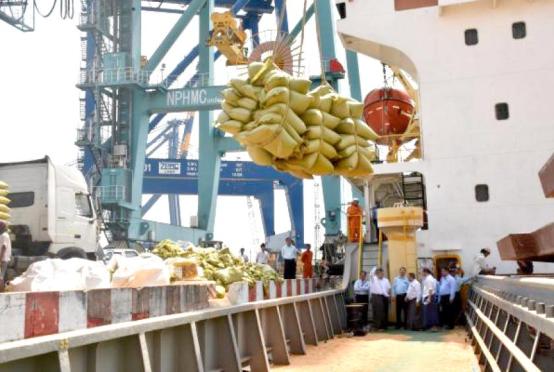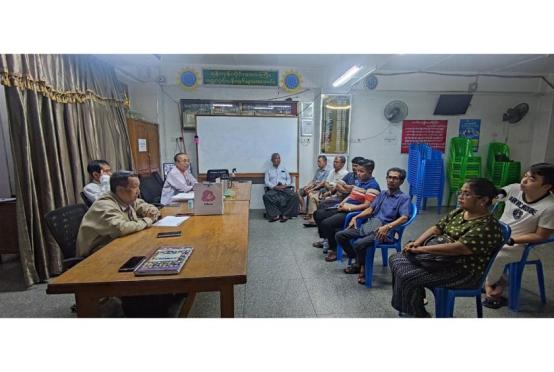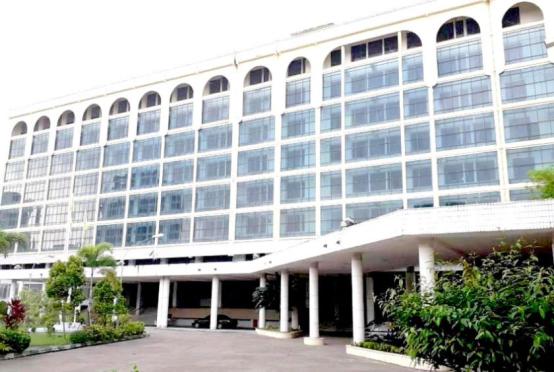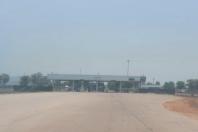DESPITE being caught in the trade war between China and the United States, Chinese giant Huawei Technologies Co remains confident of continued healthy growth in Myanmar thanks to the rising demand from locals, Liman Zhang, chief executive of Huawei Myanmar, said.
In an interview during MWC19 in the capital of Catalonia, Zhang said the firm stands ready to enjoy stronger growth in Myanmar over the next few years.
“Though we have been facing challenges since last year, our business performance remains strong here,” he said.
“Our carrier business remained stable, and our consumer business performed superbly. In 2018, our consumer business grew by 36 per cent over the previous year, with more than 1 million smart devices sold in Myanmar.”
The executive said enterprise and cloud businesses also achieved many breakthroughs. KBZPay, which has become the nation’s leading mobile financial service within a short period of time, is a success stories involving Huawei’s partnership with Myanmar companies, Zhang added.
“Myanmar is very important to Huawei, and we are also very important to this country,” he claimed, citing the example of the firm’s involvement in Myanmar’s telecom sector reforms and rapidly increasing smartphone usage.
“It is an emerging market. Tech and innovations drive economic development as a great engine here,” he said.
Zhang considers Myanmar a unique market, with a surging demand for ICT technologies and innovative business models. He pledged to bring more advanced technologies and better services to the country.
According to Zhang, the market itself, along with customer requirements, are the main driving forces behind Huawei’s growth in the country. Every industry has a strong demand for digital transformation and convenience, he said.
“With regards to Huawei’s business, the main growth points will come from new business domains such as consumer business, enterprise and cloud.”
This year, the firm will continue to invest in 5G, broadband, cloud and artificial intelligence (AI). It will bring more advanced ICT solutions to Myanmar. Those solutions would maximise and synchronise access by its customers and partners from all industries to the world’s emerging technologies, and result in greater business success.
In the first half of 2019, the Huawei Cloud & AI Contest will be held to empower college students and AI developers. It has also planned for a digital finance forum, aiming to push forward the digital transformation of Myanmar’s financial sector.
“We will stand with telecom operators to further improve 4G network coverage and quality, provide rich, cost-efficient smart devices, and fast telecom services to people and homes in Myanmar. We will help operators with early preparations in technologies and business, and government in spectrum and policies to usher in the era of 5G,” he said.
Starting from this year, sales of Huawei device models in Myanmar will be synchronised with the global market so that the nation’s people could enjoy a timely, rich smart experience like other markets.
Last year, Huawei applied WTTx (Wireless To The x) technology so that 200,000 more families, located where fibre optics were very difficult to deploy, could enjoy broadband service. It introduced the cost-efficient RuralStar solution, which uses LTE transmission to replace costly satellite transmission, and to enhance rural area coverage. The firm also came up with the CloudAir technology to address the high costs and low utilisation rate of the LTE spectrum, a move that ensured 40 per cent extra bandwidth and improved user experience.
“We leverage ICT to push forward digital transformation of all industries for Myanmar’s rapid economic performance, and work with partners to build a sound digital ecosystem here,” Zhang said. Launched last year, Huawei Cloud provides AI-enabled technologies to recognise hand-written Myanmar fonts with excellent accuracy, greatly facilitating information input and check. The firm’s public safety solutions, with reinforced AI and big data analysis, helped Yangon and other major cities to improve policy efficiency, which ensured people’s safety and has laid a solid foundation for the evolution into smart cities.
“We have signed a new MoU [memorandum of understanding] on ICT talent development with related authorities. In the next three years, we will continue with our efforts in talent development,” he said.
5G in focus
Zhang seems confident of bringing 5G to Myanmar in the next few years. “We do not want Myanmar a step behind others,” he said.
He urged the government to plan the spectrum used by 5G, the pace and roadmap of spectrum distribution, and to auction spectrum to operators at reasonable prices.
“Additionally, relevant laws and regulations must be planned and released in advance to ensure that the number of 5G base station sites in the future can be obtained,” he said.
“5G uses a higher frequency band and requires more sites, which is 10 times or more of the current 4G site. In Myanmar, sites are difficult to obtain due to various reasons. So, the government needs to prepare to address this challenge.”
Ensuring cyber security
Zhang said the firm does not have much pressure on the accusations of American-led allies, as it does not do things that are not conducive to customers and governments.
“Cyber security warnings and accusations from the US and its few allies against Huawei are totally groundless,” he said.
“At present, there is no evidence that Huawei’s devices and networks have security threats, and we have never had major cyber security incidents in history. On the contrary, our products have the strongest anti-attack and anti-penetration capabilities in the industry.”
Since 2013, Huawei has assessed the security management of our products every year. The firm has undertaken 12 assessment projects, and nine of them have reached the highest level in the industry while the other three are also higher than the industry’s average level.
Zhang said the Chinese government has clarified that there is no Chinese law stipulating that Huawei equipment can be installed with a backdoor for stealing information.
“We have never received similar requests from the Chinese government. We will never do so,” he said.
Zhang said all scientists and engineers around the world are trying to ensurenetwork security, which has become a technical and professional problem in the industry as a whole.
“The most important problem in cyber security is that there is no unified verification standard globally. So, it is easy to be used as a political topic,” he said.
Zhang added Huawei continuously promotes the construction of relevant standards with governments and industry, and measures the security of products based on standards.
















